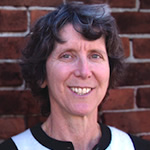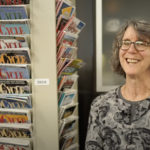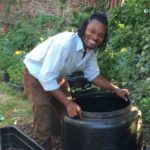Nora Goldstein
BioCycle November 2013
For some reason lately, I am drawn to adages when compiling my thoughts to write the monthly editorial. This month, I am drawn to “Steady as she goes.” Several weeks ago, BioCycle held its 13th Annual Conference on Renewable Energy From Organics Recycling (REFOR13) in Columbus, Ohio. The Friday before the event started, we had to close registration because we had reached the capacity of the meeting space at the hotel. In her welcome to conference participants, Rill Ann Goldstein Miller, BioCycle’s publisher, remarked: “This conference sets a record — you are part of the largest BioCycle Renewable Energy from Organics Recycling Conference in our 13 years of holding this event. Our father, and founder of BioCycle and the BioCycle conferences — Jerry Goldstein — was known for being at least 10 years ahead of his time! For those of you here who knew him, I’m sure you agree! Renewable energy from organics’ time is now!”
The air at BioCycle REFOR13 was filled with energy and excitement — a buzz that captured not just the progress and opportunity in the growing industries of anaerobic digestion and composting (and strengthening markets for their high value by-products), but the feeling that this is our time. Our time to aggressively build on over a half-century of research, practice, technology development and experience reported in BioCycle since 1960. Our time to be recognized for the integrated solutions offered by composting, anaerobic digestion and organics recycling — solutions that not only manage organic residuals but solve infrastructure and resource challenges. Solutions that are not provided by competing waste management options of landfilling and combustion.
“Steady as she goes” is a nautical phrase: “An instruction from the captain to the helmsman of a ship, to keep the ship heading steadily on the same course regardless of gusts of wind or cross-currents.” In our BioCycle world, it is the steady as she goes mindset that has enabled us to sail through the stormy waters of cheap disposal fees and fossil fuel energy prices, siting and odor management challenges, skepticism that people will not change their throwaway behavior and so on. We come from hardy stock that at our inner core knows that natural resources are limited, and that true sustainability means those resources have to be recycled and utilized, not buried or burned.
Indeed we have stayed the course, implementing projects and programs and refining technologies and practices despite what gusts of wind or cross-currents have been encountered. We are now fully capable of stepping up to the plate as more and more communities and project developers seek our solutions. Our menu of offerings is vast: renewable energy from organics recycling, high quality compost products, healthy soils to grow local food and manage storm water, renewable compressed natural gas vehicle fuels for fleets, cost-competitive food waste recycling — and the list goes on.
As Rill and I stood before the BioCycle REFOR13 attendees on that Monday morning in October, we were bursting with pride at what our father had envisioned and made happen, and grateful for the opportunity to be “infected” by his inspiration, enthusiasm and “steady as she goes” determination.










